This past Friday, the cat admirers across the globe received exciting news of a new and rare feline species. Off the coast of France on the island of Corsica, the National Hunting and Wildlife Office (ONCFS) unveiled to the world their purrfect discovery. The feline find is labeled as a “ghjattu-volpe” in Corsican, and the “fox cat” is super adorable no matter it’s technically called!
The National Office for Hunting and Wildlife (ONCFS) are handling a study dedicated specifically to the fox cat feline.
According to their researchers:
“It could’ve arrived at the time of the second human colonisation which dates back 6,500 years before our era. If this hypothesis is confirmed, it’s origin would be considered middle-eastern,” suggests Pierre Benedetti, one of the researchers and chief environmental technician with the ONCFS
Corsica is an island in the Mediterranean Sea and one of the 18 regions of France. Many Corsicans have long since believed myths of these cats. Now, modern data collected and recent findings of these “forest cats” prove they are more fact than fiction.
Check out this cool video of the recently discovered “fox cat” up close:
VIDEO: In the Asco forest in Corsica, two agents of the National Hunting and Wildlife Office (ONCFS) show AFP what they think is a new feline species pic.twitter.com/txeLeqzjhw
— AFP news agency (@AFP) June 14, 2019
There is still much to be discovered about the cat fox. Officials will do their very best to be sure that this new addition to the feline species is both respected and protected:
“Ultimately, we would like to see this cat recognised and protected,” says Benedetti.
You may find yourself looking at this pretty boy and thinking that it doesn’t look all that different from a tabby cat.
But think again!
The cat fox is nearly twice the length of your typical housecat, clocking in at an impressive 90 centimeters. If you look carefully, you will see that the ears are somewhat larger than that of a domesticated feline. The canines are also more pronounced, and there is a black tuft of hair at end of its tail.
“It’s their length and their tail that has earned them the name of fox-cat from one end to the other of the island.”
According to a French news outlet, the feline has the DNA of the European wildcat, as well as genetics very close to the African forest cat, but its full lineage remains to be determined.
“For us it is a natural wild species. It was known but not listed, because it is an extremely discreet animal, with nocturnal manners. It is an extraordinary discovery.”
Agence France-Presse (AFP), an international news agency headquartered out of France, covered the recent findings in a news conference. They shared with the world the probability and likeliness of more fox cats. It’s not a far reach for the steep mountainous region of Corsica where this fox cat was discovered.
“The ONCFS has identified 16 fox-cats and has captured 12, including a female.” (We’re happy to know that all were released back to the wild immediately following a quick review.)
It’s hypothesized that the fox cat spends its time hiding from eagles, hidden by the trees high. For the fox cat it’s likely that this is the only predator they must watch for in the area.
For now, they’ve successfully microchipped the feline and released him back to the wild where he rightfully belongs. This male feline (thought to be 4-6 years of age) has been captured a few times for routine health examinations. As you can see in the images and video, he has a green eye and a brown eye. The researchers believe this happened as a result of damage to his eye. Likely, he was involved in a fight with another male fox cat.
AFP’s Carlu-Antone Cecchini and Benedetti both explained the special meaning behind these cats of Corsica:
“For us, the story begins in 2008 with the unexpected capture of a cat in a hen house in Olcani, in Cap Cors”, says Pierre Benedetti. [Who]has dedicated more than ten years of his life to observing these lovely felines. And Cecchini adds that: “This animal belongs to the mythology of our shepherds. [Who] told us that these forest cats attacked the teats of their sheep and goats, and that from these stories, passed down from generation to generation, we began our search.”
We wish him, and the other fox cats of Corsica, long and happy lives in the wild where they belong!
REMEMBER: ADOPT, DON’T SHOP, MICROCHIP YOUR PETS & SPAY AND NEUTER!
Related Story: Rare Wild Black Leopard Photographed In Africa For The First Time In Over A Century
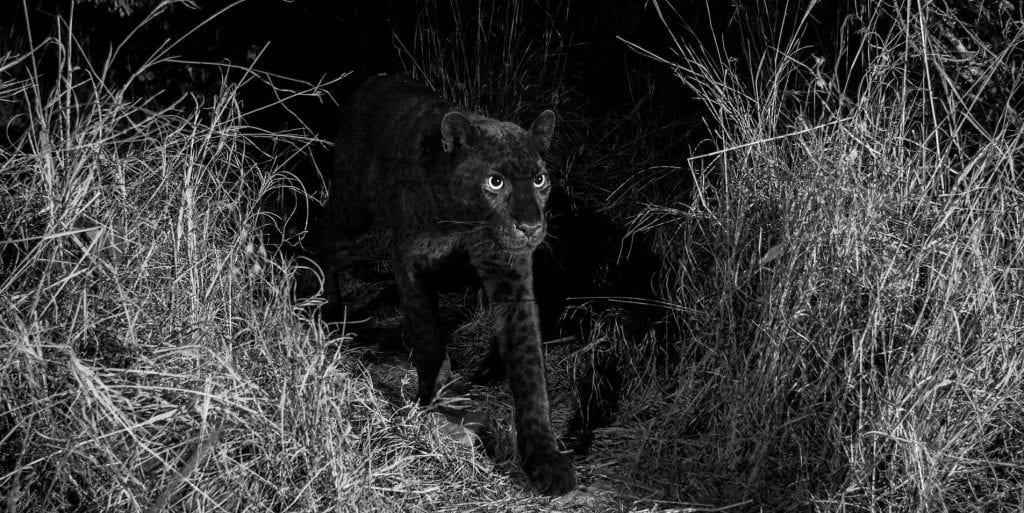
Related Story: Local Legendary Big Cat, “The Beast Of St Albans”, May Have Finally Been Caught On Film!


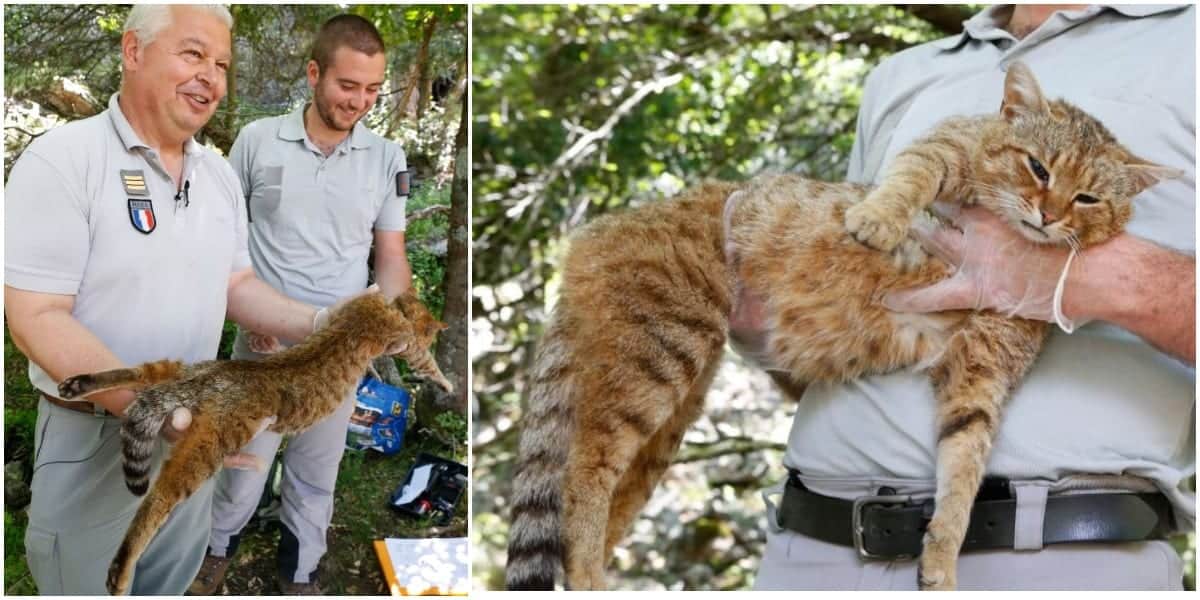
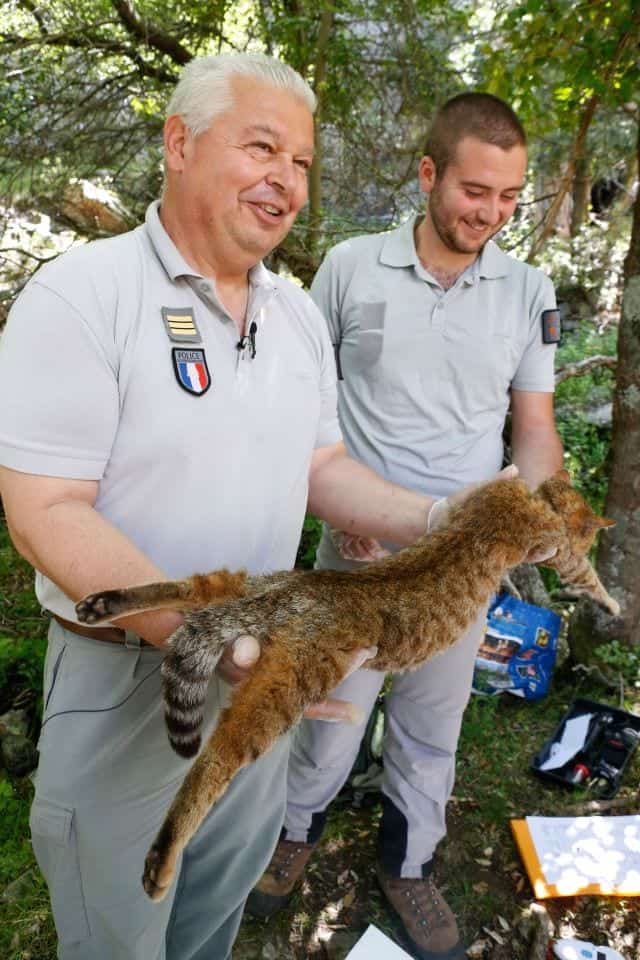
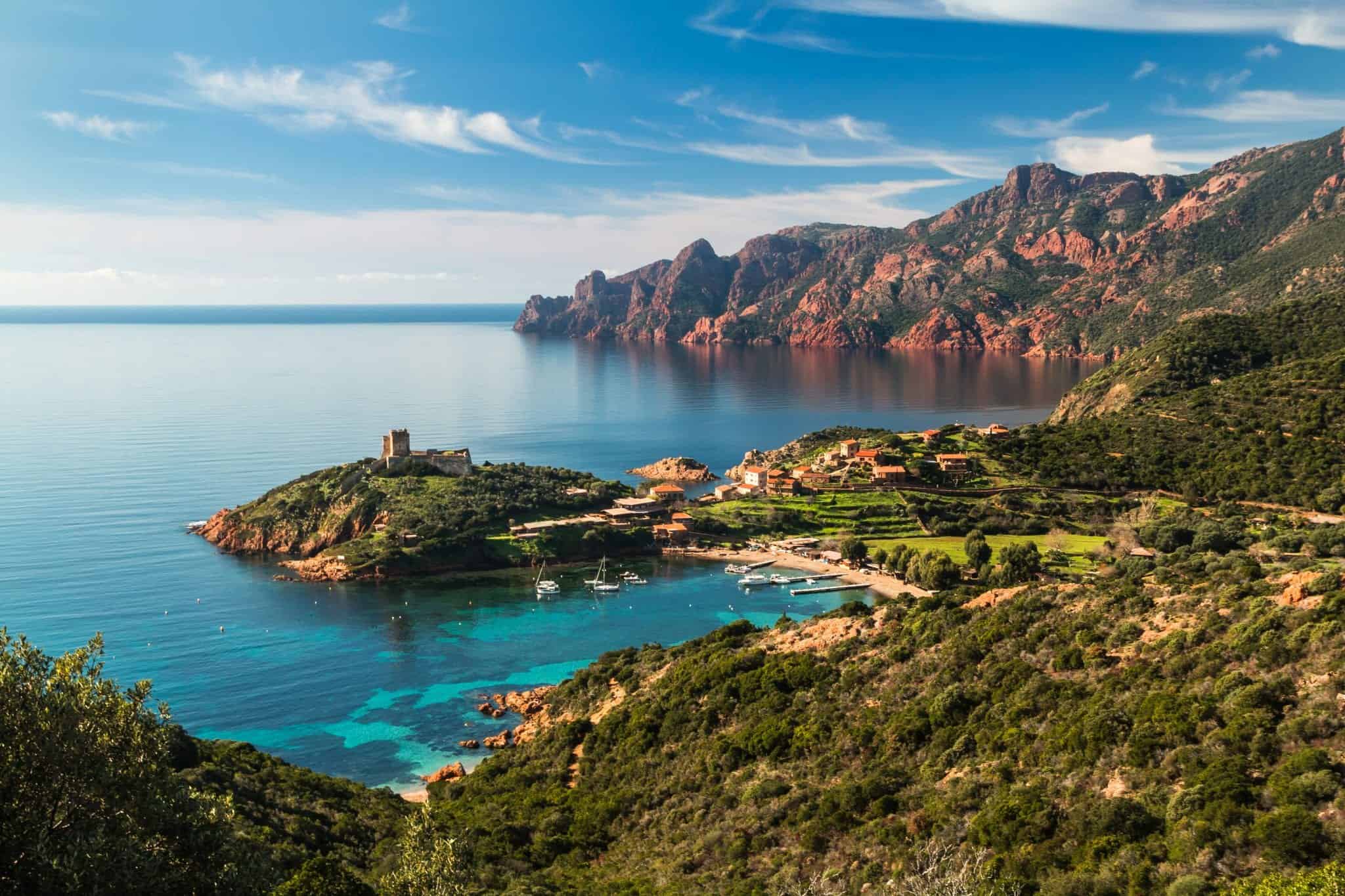
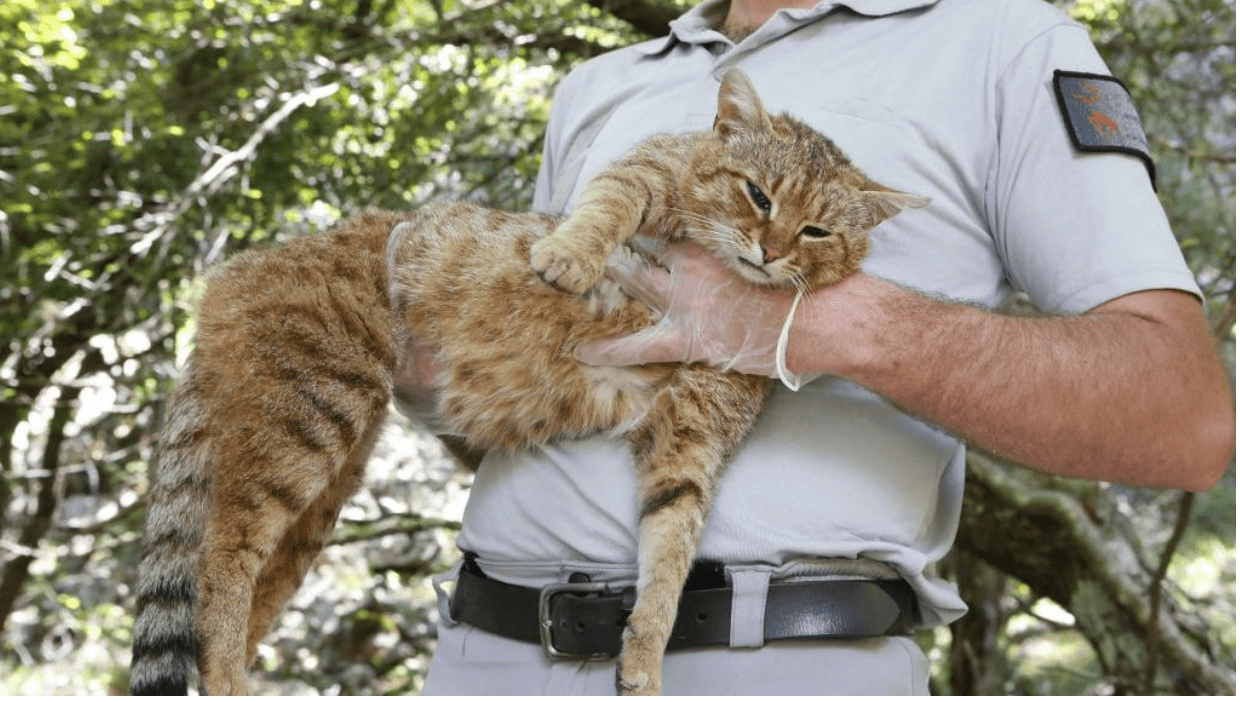



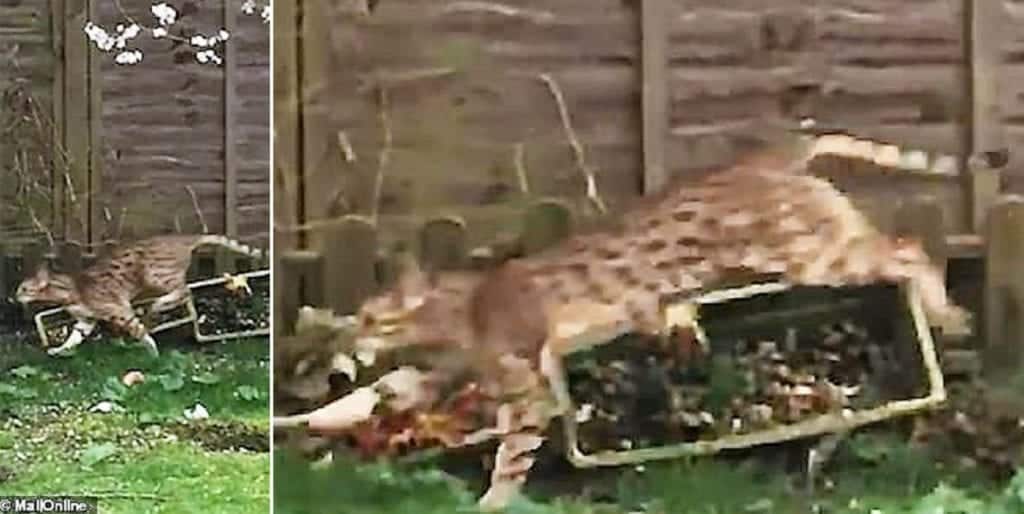
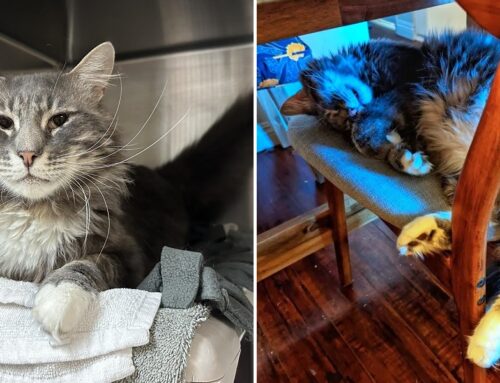
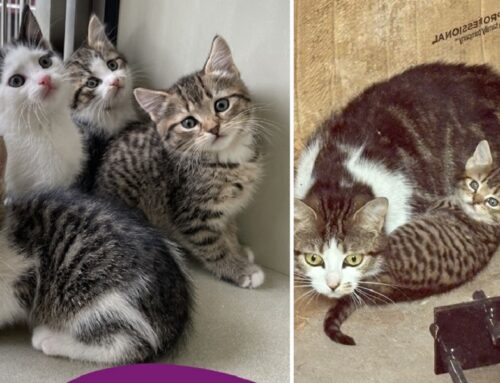


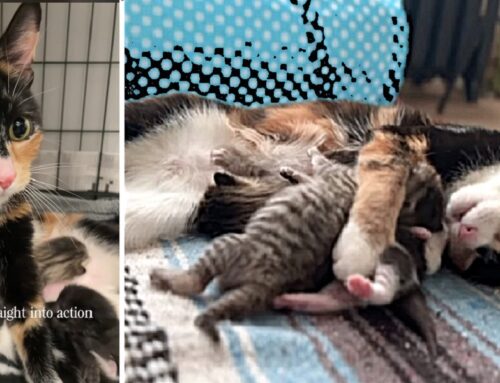

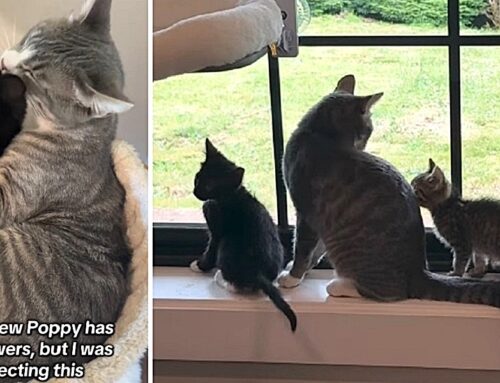

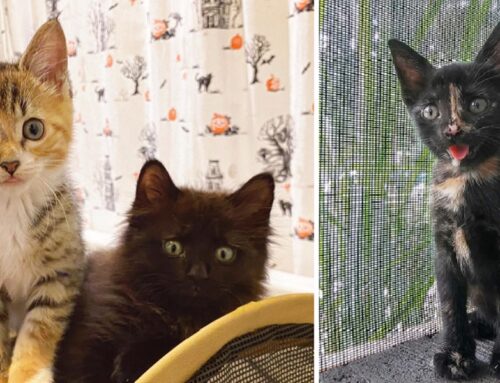

He’s beautiful <3